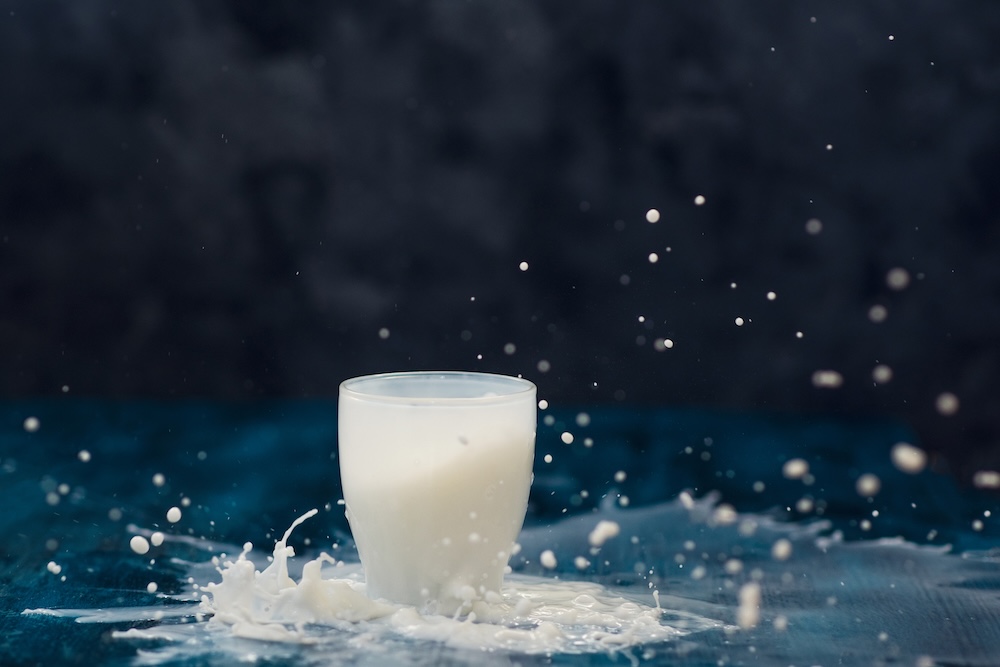The Short Answer
Surprisingly, yes — milk can hydrate better than water, at least in some contexts. Due to its electrolytes, protein, and fat, milk stays in the stomach longer and leads to slower gastric emptying, helping the body retain fluids for longer periods.
However, water remains the gold standard for everyday hydration because it’s calorie-free, widely accessible, and — most importantly — more sustainable.
Why Milk Can Be More Hydrating
A 2016 study published in the American Journal of Clinical Nutrition ranked milk (both skim and whole) above water on the Beverage Hydration Index (BHI) — a scale that compares how well drinks are retained by the body.
Milk contains:
- Electrolytes: Sodium, potassium, calcium — help retain fluids
- Carbohydrates: Provide slow energy and slow fluid absorption
- Proteins and fats: Slow digestion, prolonging hydration
This makes milk especially useful post-exercise, or for people at risk of dehydration (e.g., elderly individuals, athletes, children).
When Milk Is a Better Hydration Option
- After Exercise: Chocolate milk is often used for recovery due to its carb-to-protein ratio
- As a Meal Beverage: Helps support fullness and fluid retention
- For Kids: Offers nutrients as well as hydration, especially for picky eaters
- During Illness: Milk can help maintain hydration when food and fluid intake is low
When Water Is Better
1. Everyday Hydration
Water is calorie-free, inexpensive, and suitable for constant sipping throughout the day.
2. During High Heat or Activity
While milk hydrates well, it’s not ideal for hot weather or intense workouts due to its density and slower digestion.
3. For Digestion and Detox
Water helps flush the kidneys and maintain electrolyte balance more efficiently under normal conditions.
Sustainability Considerations
Environmental Impact of Milk Production
Compared to water, milk has a significantly higher carbon and water footprint:
- Water Use: Producing 1 liter of milk requires about 628 liters of water (for feed crops, animals, and processing)
- Emissions: Dairy farming contributes to methane production, a potent greenhouse gas
- Land Use: Dairy operations require significant agricultural land for feed and pasture
Plastic and Packaging
- Both milk and bottled water can contribute to single-use plastic waste
- Milk often comes in plastic jugs or cartons, while water is frequently sold in PET bottles
The More Sustainable Hydration Option?
Water — especially tap or filtered water — is vastly more environmentally friendly for daily hydration.
Common Questions
- Is milk better than water for rehydration?
In certain scenarios, yes. Milk can be more effective in retaining fluids due to its nutrients. - Does milk count toward daily fluid intake?
Absolutely. Any liquid — including milk, tea, juice, and soup — contributes to total hydration. - Is skim milk more hydrating than whole milk?
Slightly — because it’s lower in fat, it empties from the stomach faster but still retains hydration benefits. - Is water still necessary if I drink milk?
Yes — water is essential for flushing toxins and regulating body temperature. - Can plant-based milks hydrate like dairy milk?
Some do — especially those fortified with electrolytes or protein (like soy or oat milk). Others may lack the same hydration retention. - Is it okay to drink milk after working out?
Yes — chocolate milk, in particular, is popular for muscle recovery due to its balanced carb-protein ratio.
Final Thoughts: Hydration with Purpose
Milk may have a place in your hydration routine, particularly in recovery or nutrient-rich contexts. But for everyday use, water wins — it’s clean, calorie-free, and vastly more sustainable.
The best approach? Use both wisely. Drink water throughout the day to stay consistently hydrated. Add milk or fortified plant-based alternatives when you need extra nutrients or post-exercise recovery — and always consider the environmental footprint of your choices.









Reader Interactions